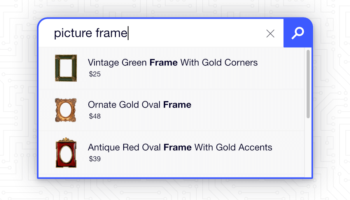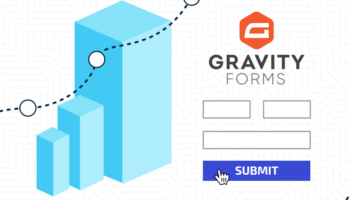If the title of this post sounds familiar, it’s because I’m self-plagiarizing the content of my upcoming webinar of the same name. But lest you feel like you’re getting a heaping of Super Bowl leftovers, note that this blog post will go into some depth I might miss when I deliver the webcast, though admittedly you’ll also be missing out on some of the sweet diagrams showing the mighty Google spider-mo-bot in next week’s presentation.
So anyways, here’s the gig: last time, I made the case for SEO, explaining that people’s brains are getting wired to seek Google first, whether they want to know the stats from last night’s ball-game or to evaluate options for a new ERP solution for their 500+ employee company. As an organization, you’re faced with continuing to try and shove your message down the throats of your customers with radio, TV or newspapers ads, or switching your thinking to reflect what your customers are looking for, which is the basic tenet of internet marketing.
The most important thing you can do as a business is to make this change of thinking. Switch around from the “I need customers for my products” way of seeing the world to “I need to show how my product meets the need of my customers.” Once this change has been made, everything about internet marketing becomes a whole lot easier.
But lest we think that it all boils down to fuzzy marketing concepts, this post is at its heart designed to quickly showcase how search engines operate, thus explaining why SEO is important and why it’s so much work.
Here Come the Spiders
To market on Google effectively, you need to understand what Google is and what it’s trying to do. To understand what Google is, let’s focus on their customer — the web searcher.
The web searcher is, well, searching for something. And Google, with hardly any information at all, does its darndest to come up with accurate results out of the trillions of websites out there. And moreover, Google endeavors to do this quickly (it just took .08 seconds to search ‘how fast is google’ just now, which got me to this fun post).
While I can’t pretend to know all of their secrets to success (and believe me, if I did, I would be putting it to use!), one of the most effective things that Google does in order to make search results speedy is caching a copy of all of the websites in their index into their massive datacenters. So rather than query the live web every time you do a search, you’re actually querying a ghost copy on Google’s servers. Wonder why Google needs close a million computers yet?
The first big question here is: how does Google GET all of those websites into their index? They certainly aren’t hiring hourly employees to do it!
The monumental task of downloading all of the pages on the entire internet is done by special web robots called spiders, whose sole job is to spend all day, every day, downloading websites and following all of the links on website pages to other website pages. In addition to simply downloading the pages, these website spiders are making notes about the pages they encounter — how content appears, in what context, order, density, how many links point to a page, how many links to other pages, etc. All of this qualitative data gets dumped into Google’s massive database which ultimately provides the basis for Google’s secret sauce — the search engine algorithm.
This nicely segueways to the next big questions: how does Google figure out which pages are more important than others?
Let’s deconstruct that rather fancy sounding word: algorithm. In short, Google’s algorithm is an insanely complex mathematical formula that takes oodles of data about trillions of websites and uses a variety of criteria to give some sort of relevance to the multiple millions of results that may apply to a given keyword. So rather than just dumping an unordered pile of madness on you when you search for “refinance my mortgage,” you get a list of sites relevant to your topic in reversing order of importance, at least according to Google’s criteria of judgement.
Now, at last, we have the third, and biggest, question: how do I use what we know about the Google algorithm to get to the top of Google search?
With so much power going into Google’s operations, you may think that it’s more of a magic trick that lands you at the top, rather than cold-hard computer science. But don’t dismay! Though Google’s algorithm is kept as a bigger secret than the location of Area 51 (I believe!), we can infer a lot about it by watching how it behaves.
Think of the Google algorithm like electricity. Though we cannot see or hold it, we can make numerous assertions about its behavior based off our skills of observation. For example, we can learn that putting links in certain places in the content help improve rankings in a certain way, or that laying out text in a certain way is preferential to another way of laying out content. This kind of trial, error, and observation has been the mainstay of the SEO industry for at least a decade and will continue to be for the foreseeable future.
Luckily things are a little easier for you. First, you can benefit from the legions of search marketers who live and breathe search engines, and also happen to be crazy enough to tell just about everything they know on their blogs. And in case you’re skeptical of the blogosphere (which isn’t a bad idea), Google is releasing their own best practices for search optimization.
(Of course, if you’d rather spend your time working on building your business rather than learning an arcane technical art, you can hire someone like ourselves to build and market your website)
Mama Knows Best
So what have we learned about Google from observing its algorithm for the last ten years? Well, an awful lot more than we can fit into a single blog post!
But there are some general, widely-held best practices about how search engines work which form the foundation of the entire process of organic search marketing, and these we’ll share.
Stayed tuned for our next installation, due next week. And don’t miss my webinar for more information on How Search Works!
photo credit: jpctalbot
Want to learn more now?
 |
What You Need To Know About SEOReady to start coming up in search engine listings? Wondering how to tell gold from snake oil in the SEO industry? Learn all about the basic principles of SEO and how they affect your website in this action-packed half hour. We Cover:
|
 |
Advanced SEO: How Search WorksIn this “roll up the sleeves” webinar, we go behind the scenes to learn how search engines index and organize the web and show why the principles of SEO we discuss in other webinars actually work based on the activities of search engines. More importantly, we tie this all back into your business, and discuss how an understanding of the web and search translates into an effective web site for your company. |





